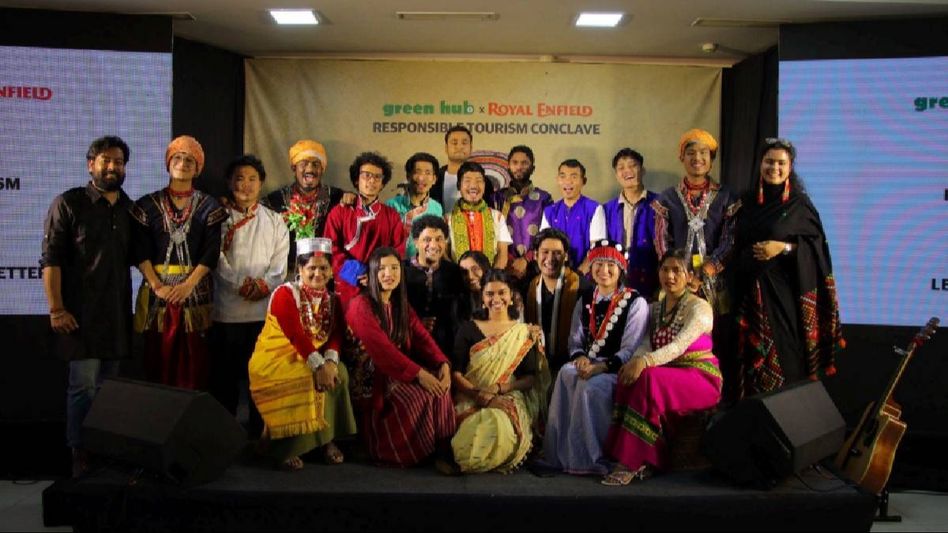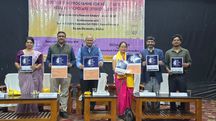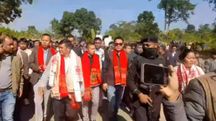How Responsible Tourism Conclave is throwing light on Northeast India's remotest locations
The second Northeast's Responsible Tourism Conclave spearheads conscious travel across the northeastern Himalayan region. The conclave marks the end of the second edition of the fellowship, promoting sustainable livelihoods, climate action, and supporting 100 Himalayan communities.
 Northeast's Responsible Tourism Conclave Initiates Sustainable Travel and Conservation Efforts
Northeast's Responsible Tourism Conclave Initiates Sustainable Travel and Conservation Efforts- The second Northeast's Responsible Tourism Conclave promotes sustainable travel across the northeastern Himalayan region.
- The fellowship programme supports youth from six states and 15 communities, training them to develop responsible tourism business models.
- The conclave aims to establish a responsible tourism ecosystem, connecting youth with community networks, government departments, and green investors.
The second edition of Northeast India's Responsible Tourism Conclave set the wheels in motion for conscious travel throughout the northeastern Himalayan region. From community-based zero-waste, and agri-tourism to nature-linked conservation models, fellows from the last two editions presented their unique and hyper-local action plans to build their responsible tourism business models at the conclave.
The fellowship includes training sessions and exposure trips under the guidance of livelihood and responsible tourism experts. The fellows are supported to build on carefully chosen project sites or Responsible Tourism destinations throughout the fellowship. There were 16 fellows from six states, chosen to work on four project sites last year. “Clean and Cool Chullyu”, “Gorgeous Gobuk” and “Wild and Pure Labukore” were some of the most remote landscapes chosen as RT sites in Arunachal Pradesh last year.
The second batch, which commenced in September 2023 trained 14 fellows at five project sites across Arunachal Pradesh (Zemithang), Sikkim (Geyzing), Meghalaya (Hima Laitkroh) and Assam (Sonapur and Nagaon). The conclave marked the end of the second edition of the fellowship. Over the two editions, youth from six states and 15 communities have been supported.
The Responsible Travel Conclave is part of one Indian-origin band’s social mission to work with 100 Himalayan communities to build resilience in the iconic Himalayan Region. The social mission also aims to catalyze a global movement of one million travelers to explore sustainably. The Conclave connects youth to community networks, government departments, travel agencies, tour operators & aggregators, private stakeholders, NGOs,
home-stay partners and green investors to build a responsible tourism ecosystem in the region.
“The fellowship is creating a network of youth who are helping mainstream the idea of responsible tourism. It is a grounds-up approach where the action plan for each site is being developed, hand-in-hand with communities. The RT conclave helps to bridge communities to the larger travel industry. This responsible thinking at every step, we hope, will help transform the contribution of travel more deeply towards sustainable livelihoods and climate action,” said Rita Banerji, founder of Project Green Hub.
“For the first time, we are learning how to balance tourism with conservation, how to respect the worth of what we have and tell the world to come and understand our unique cultural heritage,” said 29-year-old, Shusaye Yobin, an RT fellow from Chalang District of Arunachal Pradesh. The conclave also displayed exhibits of project sites, presentations of intangible cultural heritage including musical performances that celebrate the diversity of northeast India.
Copyright©2025 Living Media India Limited. For reprint rights: Syndications Today









